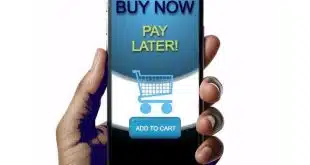With the influence of smart phones on in-store sales outpacing their influence on online sales, San Francisco-based Zappli Inc. is seeking to remedy that disparity through the introduction of InstaBuy, a mobile-checkout application that enables consumers to make a purchase through their smart phone in two clicks.
Merchants can deploy InstaBuy on their mobile Web site or a comparison- shopping site. Once deployed, the application appears as a button on a product page or on the checkout page. When a registered InstaBuy shopper clicks on the InstaBuy button, she is prompted for her password to verify her identity. Next, the shopper is shown all pertinent information relating to her purchase, such as shipping charges, taxes, and estimated arrival date. The shopper completes the purchase by clicking the confirm button.
The two-click process eliminates the need for a shopper to enter such data as her credit card number and shipping and billing address on a device with a small keyboard that makes data-entry errors likely.
“One of the problems with mobile commerce is that there is too much friction around checkout,” says Philippe Suchet, chief executive of Zappli, a startup that began with mobile-shopping solutions. “In order for merchants to maximize m-commerce conversion rates, they need to make checkout as easy as swiping a card in the store.”
While smart phones influence 5.1% of all retail store sales in the United States, according to Chicago-based research and consulting firm Deloitte, Suchet says online conversions through mobile phones are less than 1%. By streamlining the checkout experience, merchants can deliver a more user- friendly mobile-shopping experience that makes it easier for consumers to make purchases using their phone whenever the mood strikes, Suchet argues.
To use InstaBuy, consumers must register their card account and billing and shipping addresses, along with other pertinent information required at checkout. The information is kept on Zappli servers and transmitted to the merchant when a registered shopper makes a purchase. The merchant bills the consumer’s credit card and completes the transaction as it normally would. Zappli earns an undisclosed percentage of each transaction in addition to set-up fees.
“We are not the merchant of record like PayPal,” says Suchet, who founded Zappli more than two years ago and has a background in behavioral marketing. “InstaBuy is a mobile-checkout application that enables mobile purchases to be made with less friction.”
While Suchet will only say the application is being used by dozens of merchants, he adds that merchants are spearheading the marketing of InstaBuy to consumers.






